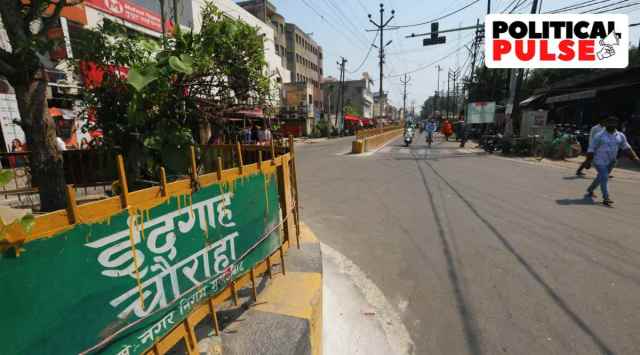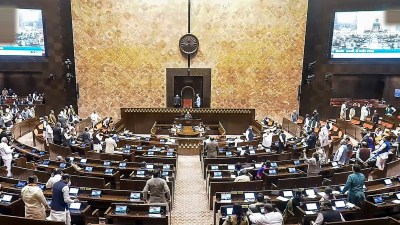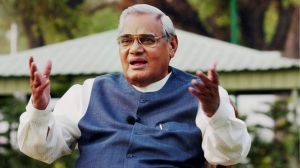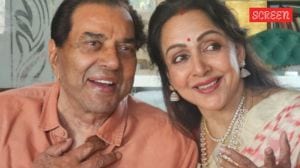After four decades, Moradabad riot report tabled In UP Assembly: RSS, officials exonerated
Report says an IUML leader and another local Muslim politician incited riots, gives clean chit to common Muslims and Hindus
 The Idgah where the violence that happened in Moradabad City on August 13 in 1980. (Express Photo: Gajendra Yadav)
The Idgah where the violence that happened in Moradabad City on August 13 in 1980. (Express Photo: Gajendra Yadav) Nearly 40 years after Justice M P Saxena submitted findings on the communal riots that rocked Moradabad in Uttar Pradesh in August 1980, the report was tabled in the Uttar Pradesh Legislative Assembly on Tuesday.
The violence that began on August 13, 1980, at the Eidgah in Moradabad town, continued in Sambhal, Aligarh, Bareilly, Allahabad (now Prayagraj), and the rural areas of Moradabad until early 1981. This was the first time UP had seen communal violence of this scale. There was a Congress government in Uttar Pradesh then, under the leadership of Chief Minister Vishwanath Pratap Singh, and Indira Gandhi was the Prime Minister.
Saxena, who retired as a judge of the Allahabad High Court on August 1, 1983, had submitted his report on November 29 that year. But till date, its contents had never been made public and no action was taken on its recommendations.
The report, which runs over 400 pages, has given a clean chit to officials at the time – in the administration as well as the police, including the Police Arms Constabulary (PAC) – as well as Rashtriya Swayamsevak Sangh (RSS) and the BJP.
The report says that Indian Union Muslim League (IUML) leader Shamim Ahmed and one Hamid Hussain incited the riots, and neither any government official nor any Hindu was responsible for the violence. The report also gives clean chit to “common Muslims”.
The one-member commission was formed to look into three aspects: The facts and reasons of the August 13, 1980 riots; the relevance of the action taken by the local officials and whether it was enough and to set accountability of government officials, employees or other people.
“The Commission has come to a conclusion that for the trouble at Eidgah and other places (in 1980), no government official, employee or Hindu are responsible. In these riots, the role of the RSS or BJP has not come out anywhere. Even the common Muslim is also not responsible for ruckus at the Eidgah,” reads the report.
Holding the IUML leader responsible, the report concludes, “Yeh Dr Shamin Ahmed ke netritva wali Muslim League aur Dr Hamid Hussain urf Dr Azzi ke netritva wale khaksaron tatha unke samarthakon aur bhaare ke vyaktion ki kargujari thi (It was the result of acts of the Muslim League led by Dr Shamim Ahmed and those close to and supporters of Dr Hamid Hussain alias Dr Azzi and some hired persons).”
The report notes that when rumours were spread about pigs being set loose among those offering namaz at Eidgah, and Muslims, including children, being killed, it incited the members of the community who attacked police stations, police outposts and Hindus. “It in turn forced Hindus to retaliate, turning the situation into a communal riot,” the report adds.
The report observes that communal violence continued even after August 13, 1980, as there was a belief that members of the minority community were killed in large numbers, despite the proof that most died in stampedes. The report does not comment further as the mandate of the probe was limited to the August 13, 1980, Moradabad riots.
In listing the history, facts and reasons relating to these riots, the report observes that the violence was the result of a “leadership tussle” within a section of the Muslim community. It observes that as the “Muslim population in the country was increasing” at the time, they were being prompted to consider themselves as “vote bank” for the purpose of elections.
“Muslim netaon duara musalman jan samudaye se apna swartha sadhan karna iss ghatna ka ek pramukh kaaran thaa (The efforts made by Muslim leaders to win favours from the community was the main cause for the incident),” the report states as it points towards the political ambitions of Dr Shamim Ahmed Khan, who revived the IUML in Uttar Pradesh.
The report observes that behind the riots was an incident that dates back to May 1980, in which a Valmiki (Dalit) girl, aged between 17 and18 years, was allegedly kidnapped and raped by Muslim youths. A case was registered and the suspects found support from a Muslim League leader. Later, when the girl’s parents married her off on July 27, 1980, which was also the month of Ramzan, her baraat was attacked allegedly for disturbing Roza Iftar. This led to a clash between members of the Valmiki community and Muslims.
The death toll, including those who were missing and were considered dead, was reported to be 289 – then state Home Minister Swarup Kumari Bakshi had told the Assembly.
The Commission, however, puts the number of deaths at 84 and those injured in the riots at 112.
With regard to the actions taken by the administration, the report states that officials, including the then district magistrate as well as senior police officers, took necessary steps to maintain peace. Further, it states that firing by police and PAC was “legally appropriate”.
It observes that “despite the fact that rioters attacked Hindus, officials and police in a mindless manner, the police still used force with much control”.
The report in its suggestions on ensuring that such communal riots are not repeated lists “discouraging the habit of considering Muslims as a vote bank in the election”; “keeping a watch on such people and professional criminals in the communally sensitive areas, who have the history of creating disturbances and stop their activities immediately”, among others.
Further, it suggests ensuring rumours are not spread, regular inquiry into illegal arms manufacturing, not allowing Pakistani citizens to stay longer after the expiry of their visa, and formation of peace committees.
- 01
- 02
- 03
- 04
- 05































